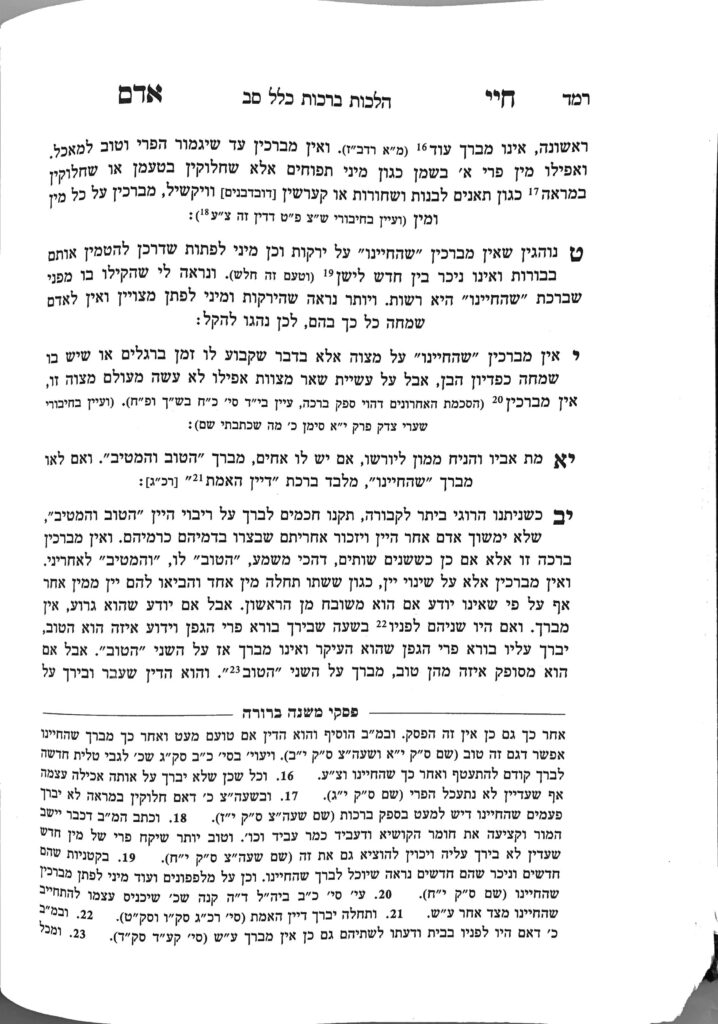We are beginning siman 11. The Chayei Adam writes that if one of the seven close relatives of a person pass away, and they receive an inheritance as a result, in addition to reciting the bracha of dayan haemes, they must also recite shehecheyanu. If the inheritance is being shared with others, the bracha is hatov vehametiv. (The seven close relatives are: mother, father, sister, brother, son, daughter, spouse.) The bracha is recited due to the simcha generated at that moment as a result of the new items acquired through the inheritance. Chazal understood that a person can hold multiple emotions at the same time, and therefore enacted that the bracha be recited.
There is no source in halacha not to follow this halacha, but the minhag has become not to make the bracha. Rav Shlomo Zalman Auerbach, ztl, adds that once the minhag has become to refrain from making the bracha, if one were to make it, it would be inappropriate, because it gives off the impression that they are happy with the relative passing away.
The achronim question why the minhag has become to refrain from the bracha. There is one opinion in the rishonim that the bracha is only made on an inheritance which a person receives unexpectedly. If the person is aware of the financial status of the relative before they passed away, the moment of inheritance is not as extraordinary, and shehecheyanu would not be appropriate to recite concurrently with dayan haemes. Since it is uncommon for an inheritor to be unaware of the financial status of their seven close relatives, the minhag has become to refrain completely from reciting it.
Summary
- Although halacha states that one should recite shehecheyanu upon receiving an inheritance, the minhag has become to refrain completely from reciting the bracha.



